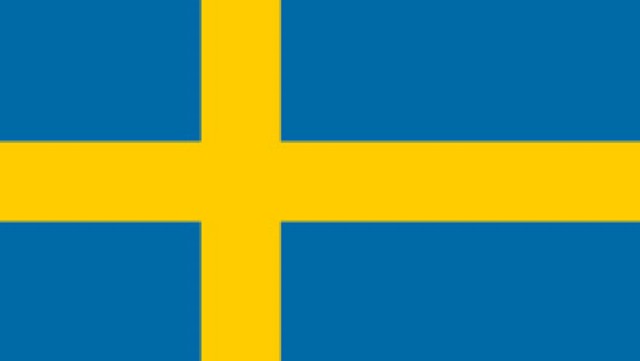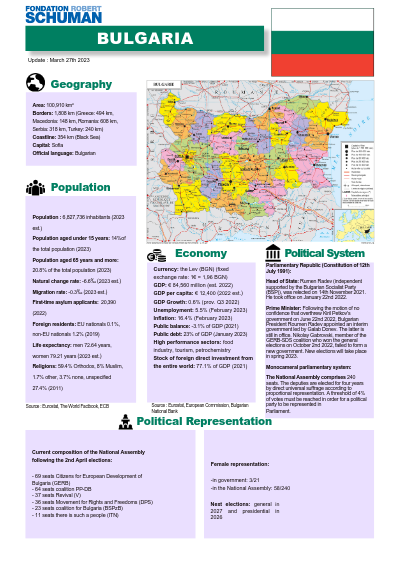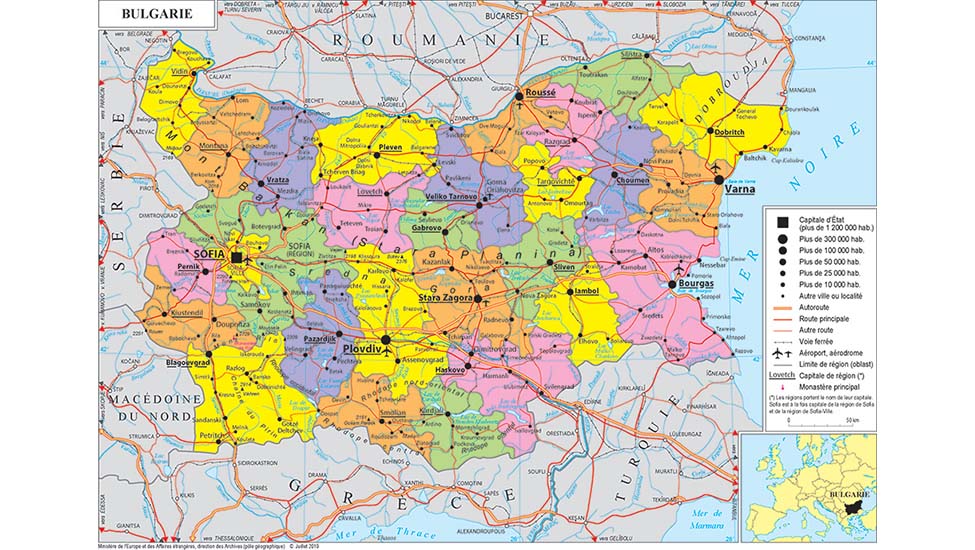
Geography
Area : 100,910 km²
Borders : 1,808 km (Greece: 494 km, Macedonia: 148 km, Romania: 608 km, Serbia: 318 km, Turkey: 240 km)
Coastline : 354 km (Black Sea)
Capital : Sofia
Official language : Bulgarian
Flag
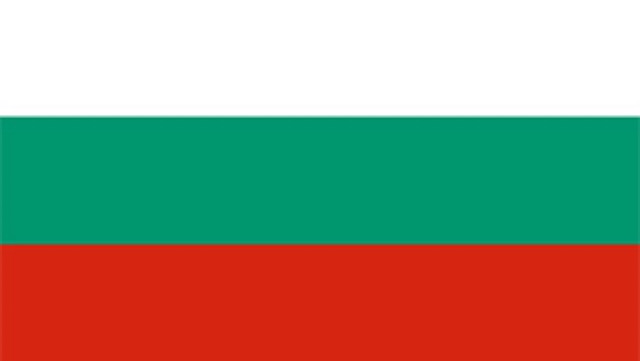
Population
Population : 6,827,736 inhabitants (2023 est.)
Crude natural change rate : -6.6‰ (2022)
Population repartition: 14.2% of the total population, 23.5% of the total population (2023)
Foreign residents: EU nationals 0.1%, non-EU nationals 1.2% (2019)
Crude net migration rate: -0.3‰ (2023 est.)
First time asylum applicants: 22,510 (2023)
Life expectancy: men 72 years, women 79,6 years (2023)
Religions: Orthodox Christian 64.7%, Muslim 9.8%, other 0.1%, none 3.7%, unspecified 20.7% (2021 est.)
Source : Eurostat, The World Factbook, ECB
Economy
Currency: the Lev (BGN) (fixed exchange rate: 1€ = 1,96 BGN)
GDP: € 93,948 millions (2023)
GDP per capita (PPS): € 7,850 (2023)
GDP growth : 1.8% (2023)
Inflation: 2.5% (April 2024)
Public debt: 23.1% of GDP (Q4 2023)
Unemployment: 4.5% (April 2024)
Stock of foreign direct investment from the entire world: 69.4% of GDP (2022)
Performance sectors: food industry, tourism, petrochemistry
Budget balance: -2.3% of GDP (Q4 2023)
Source : Eurostat, European Commission, Bulgarian National Bank
Political system
Parliamentary Republic (Constitution of 12th July 1991):
Head of State: Rumen Radev (independent supported by the Bulgarian Socialist Party (BSP)), was relected on 14th November 2021. He took office on January 22nd 2022.
Prime Minister: On 30th March 2024, the President of the Republic, Rumen Radev, appointed Dimitar Glavchev as interim Prime Minister following the failure of the agreement reached between the PP-DB (coalition Continuing the Change/Bulgaria Democratic [centre-right]) and GERB [centre-right]).
Monocameral parliamentary system: The National Assembly comprises 240 seats. The deputies are elected for four years by direct universal suffrage according to proportional representation. A threshold of 4% of votes must be reached in order for a political party to be represented in Parliament
Political representation
Current composition of the National Assembly following the 9th June 2024 elections:
- 69 seats Citizens for European Development of Bulgaria (GERB)
- 63 seats coalition PP-DB
- 36 seats Movement for Rights and Freedoms (DPS)
- 34 seats Revival (V)
- 23 seats coalition for Bulgaria (BSPzB)
- 11 seats there is such a people (ITN)
- 4 seats Indépendants
Women's representations
- in government: 4/19
- in the National Assembly: 61/240
Next Elections:
On The Same Theme
Country Sheet
Country Sheet
Country Sheet
Country Sheet
Country Sheet
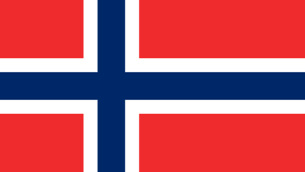
Country Sheet
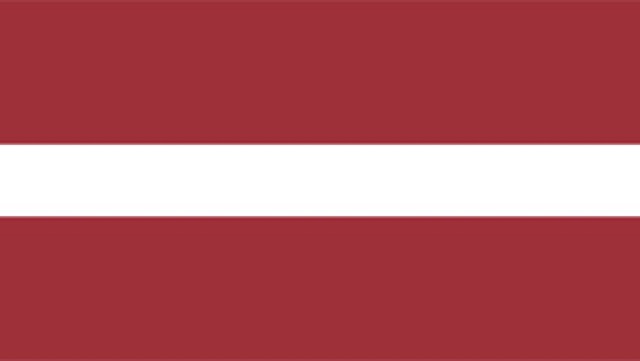
Country Sheet
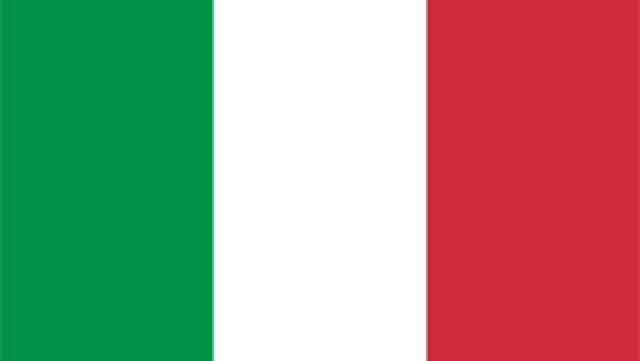
Country Sheet
